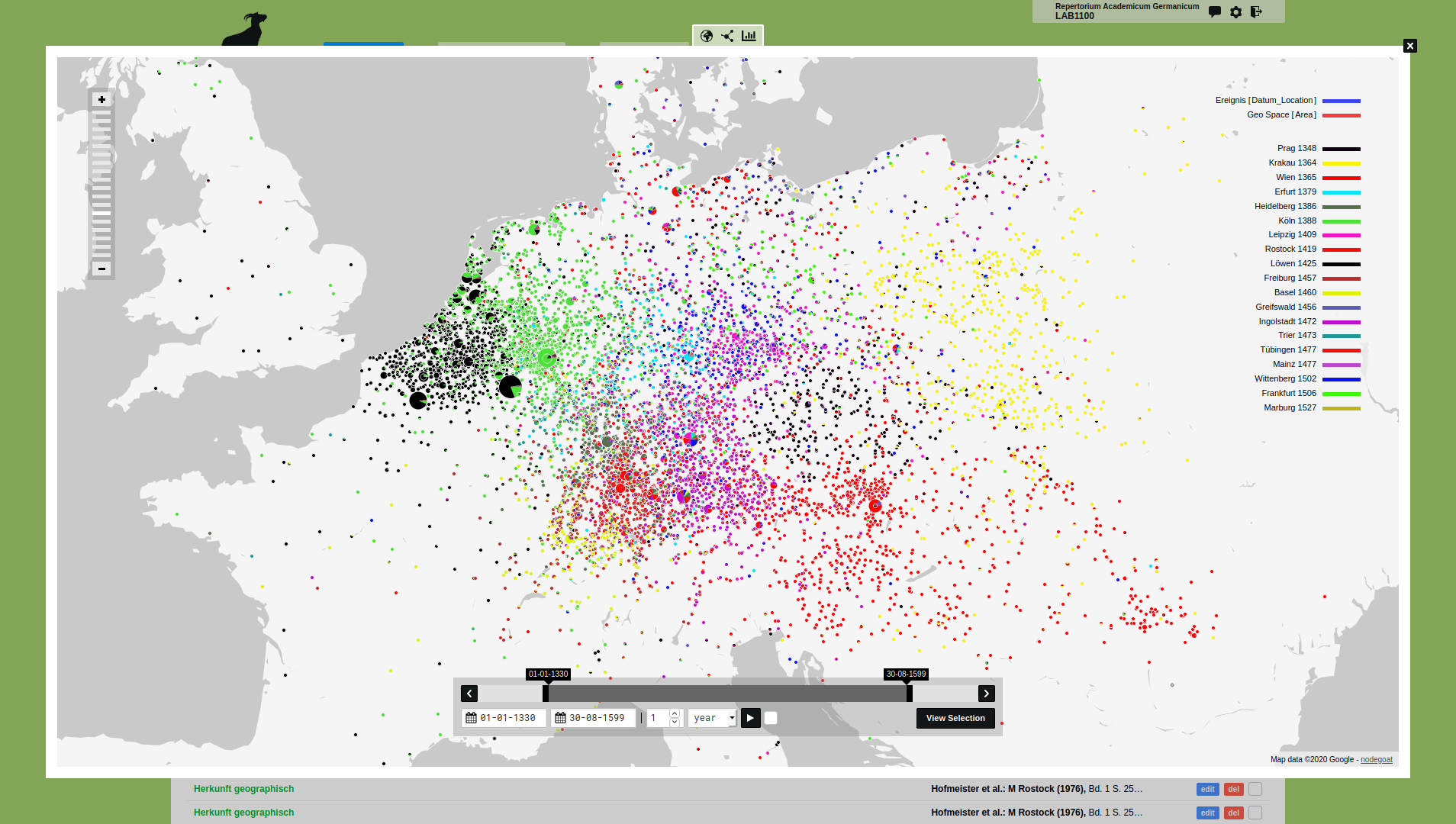Repertorium Academicum Germanicum - The Graduate Scholars of the Holy Roman Empire
CORE Admin
The aim of the Repertorium Academicum Germanicum (RAG) is to develop the history of the cultural reach of a pre-modern intellectual leadership. The RAG gains a comprehensive insight into the medieval origins of the modern knowledge society with around 60.000 scholars with 360.000 observations on their life and career paths, within the framework of an analysis of contextualized prosopography. The RAG uses nodegoat as their primary data storage application and research environment. nodegoat is also used to create and publish diachronic geographical and social visualisations.
Work on the RAG began in 2001 under the direction of Rainer Schwinges and Peter Moraw, financed by the Swiss National Science Foundation (SNSF), the German research foundation and the Fritz Thyssen Foundation. From 2007 to 2019 the project was funded by the Union of the German Academies of Sciences and Humanities and from 2008 on as well by the Swiss Academy of Humanities and Social Sciences. The project will be run from 2020 at the University of Bern as part of the larger project Repertorium Academicum (REPAC), which is led by Christian Hesse and Kaspar Gubler and advised by Rainer Schwinges.[....]